First off, if you’re not into Dungeons & Dragons, don’t worry too much, it’s a lot to read up on, a lot of rules to learn, and on top of that, a person needs to decide what species they want to be, what class and everything you do and choose is going to be approved or denied by the only person with the power to do so, the Dungeon Master. As far as a player is concerned, in the game at least, the DM is the law, the one true god, the power above all, and the person that decides your fate if you step out of line. But apart from that, the game is supposed to be fun. For the DM though, things can go from expected to WTF very quickly. Why? How? Oh, you’ll see…
Remembering that YOU run the game
The point of D&D is to cater to your players and let them have fun, but not to let them run all over you. Some DMs don’t mind letting their players take their own initiative when it comes to asking questions, while others will seat their players around a table and take turns. Both ways can be frustrating and some players might try to butt in with something that sounds urgent to them, but isn’t really that big of a deal. The trick is to learn how to break things up. Here are just a few ways to do that:
- Roll for random encounters: Take a d6 or even a d4 (six-sided or four-sided dice) and roll. Don’t tell the players what it’s for, you’re not obligated to do so. The higher you roll, or the lower, could mean that something is about to happen, be it an encounter, an ambush, just something to break up the monotony. Don’t worry if you don’t get to all of your players, they’ll likely forget if you give them something to really worry about in the next second.
- You do need to take the party level into account: If you’re players are all level 1 you don’t want to throw something level 20 at them, no matter how irritated they make you by trying to do their own thing. This is D&D, it’s going to happen, and the dice rolls are going to determine who gets out alive and who needs to roll a new character. For low levels, always leave a way out. Hey, monsters can get bored with easy kills too…
- Don’t take things personal: Whatever you do, don’t take things personally. If your players are rolling well and practicing sound tactics, be proud of them, even if they just blew through what took you roughly a week to plan. Be sure to not give the players too many magical items, that’s a good way to keep them in check, and do make sure they’re being honest with their numbers, since a level 1 ranger shouldn’t be able to take down anything more dangerous than a wolf, if that, without a bit of help.
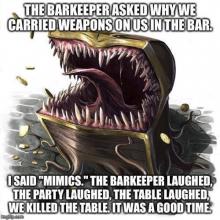
How D&D Starts
The moment everyone has their characters settled, their gear selected, their weapons strapped and their stories straight, it’s time to start. Take a mental picture, since this is the last time you’ll feel like badasses in this game, unless you’re very, VERY lucky. Most adventures don’t start out too badly, especially with a good DM. If the DM can keep to the story and also keep it interesting, the players will listen and they’ll start to formulate plans on what they can do and how they can mess things up. Hey, it’s not negative thinking, it’s practical since people will start wondering that they can do in this fantasy world. There are ways around that too.
- Remind the players that even in the fantasy world there are consequences: They want to steal healing potions from the apothecary? Make a stealth check, then a move silent check, moving half speed while trying to get around a shopkeeper and citizens that might be looking right at the player. They want to get in a bar fight? The town or city guard could come along, and chances are they’ll be more skilled than the players and mop the floor with them before slamming them all in jail. Oh yeah, the DM shouldn’t take anything personal, but the players should remember that there are still rules in this world.
- They want to go off script and do their own thing: That’s fine. Come up with random encounters. Make them harder than the players can deal with to get them back on track. Don’t try to kill them, maybe just have a bandit brigade surround them and knock them out. Just do something to remind them, this is YOUR story, they’re just playing in it.
- Against all advice, they want to try to do something monumentally stupid: Yes, this happens quite often, and it’ll be up to the DM to say ‘screw it’ and just kill the party to teach them a lesson, or find a way to save them, as in, have a rescuer come to their aid and mop up the enemies easily. The latter is a little humiliating, but it teaches a good lesson. If they attack that individual, then something else will come along, and so on and so forth until they get the point. At least it doesn’t make them want to leave right away, like killing their characters would do.
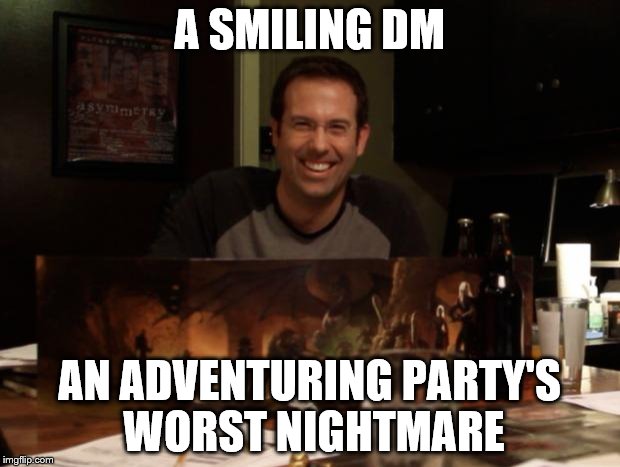
It’s a fun game, so have fun with it.
The players are going to do anything and everything they can think of, and the DM has to roll with it, literally. Your dice rolls will determine what happens, and your imagination will determine what’s coming next and what situation the party will find themselves in. The best DMs are those that can roll with the punches and remind their players that while they start out awesome, one encounter can change them from roaring lions of war into timid kittens looking for a sandbox to hide in. Have fun with it!
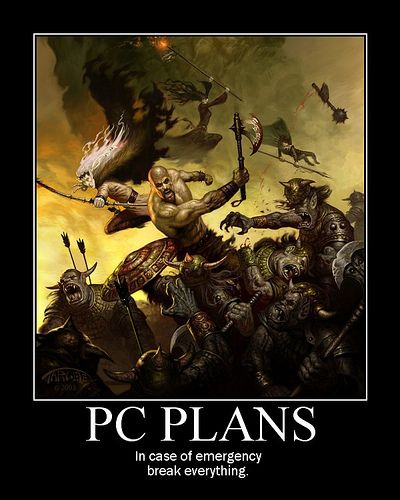
WTR? (Why’s That Radass?)
D&D is one of the most engaging and fun-filled games, and even staying within the rules and seeing what can happen by allowing your players to do what they want is rather cool, especially when they realize that they need to deal with the consequences. Remember, the moment that the monster, or the DM, smile at you, then shit just hit the fan. So, who’s standing in front and who’s taking cover?
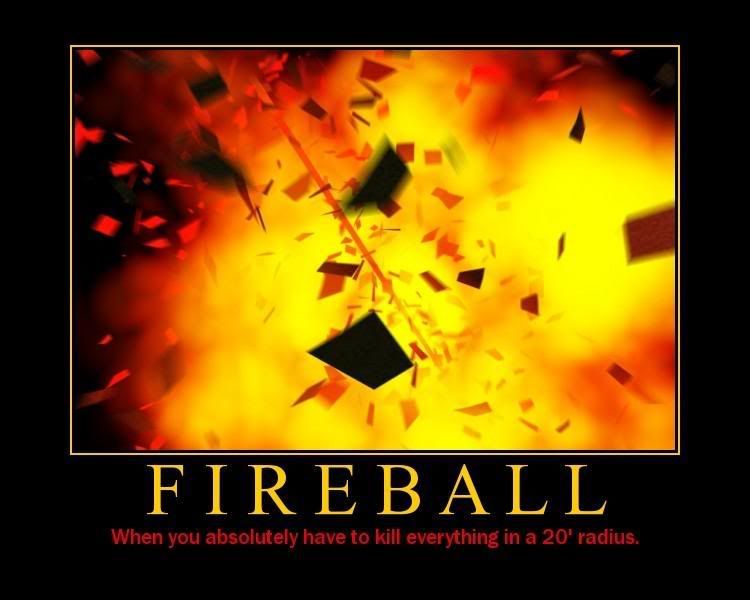

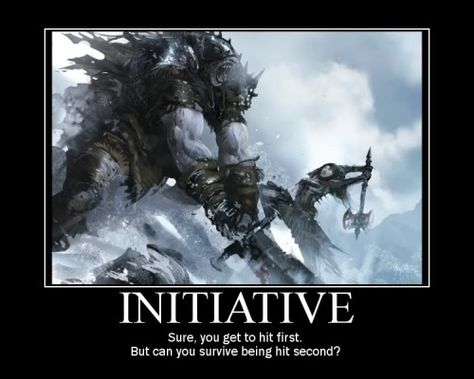



1 comment
My spouse and I absolutely love your blog and
find almost all of your post’s to be exactly what I’m looking for.